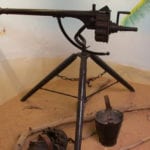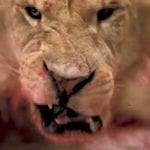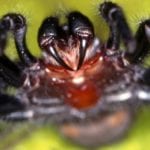 Mysteries
Mysteries  Mysteries
Mysteries  History
History 10 Surprising Stories About the Texas Rangers
 Humans
Humans 10 Philosophers Who Were Driven Mad by Their Own Theories
 Miscellaneous
Miscellaneous 10 Video-Game-Worthy Weapons and Armors from History
 Weird Stuff
Weird Stuff 10 Psychics Who Accurately Predicted Wartime Events
 The Arts
The Arts 10 Pieces of Art Inspired by a Broken Heart
 Health
Health 10 Science Fiction-Sounding New Medical Treatments
 History
History 10 Surprising Facts About the Father of Submarine Warfare
 Space
Space Ten Astonishing New Insights into Alien Worlds
 Weird Stuff
Weird Stuff 10 Bizarre Summer Solstice Rituals Still Practiced Today
 Mysteries
Mysteries Top 10 Haunting Facts About the Ghost Ship MV Alta
 History
History 10 Surprising Stories About the Texas Rangers
 Humans
Humans 10 Philosophers Who Were Driven Mad by Their Own Theories
Who's Behind Listverse?

Jamie Frater
Head Editor
Jamie founded Listverse due to an insatiable desire to share fascinating, obscure, and bizarre facts. He has been a guest speaker on numerous national radio and television stations and is a five time published author.
More About Us Miscellaneous
Miscellaneous 10 Video-Game-Worthy Weapons and Armors from History
 Weird Stuff
Weird Stuff 10 Psychics Who Accurately Predicted Wartime Events
 The Arts
The Arts 10 Pieces of Art Inspired by a Broken Heart
 Health
Health 10 Science Fiction-Sounding New Medical Treatments
 History
History 10 Surprising Facts About the Father of Submarine Warfare
 Space
Space Ten Astonishing New Insights into Alien Worlds
 Weird Stuff
Weird Stuff 10 Bizarre Summer Solstice Rituals Still Practiced Today
10 Great Things We Saw During The Australian Fire Crisis
Estimates suggest that up to a billion animals perished. The human lives lost are steadily climbing to 30. Millions of hectares. Countless homes. All consumed by one of the worst disasters in living memory.
It’s difficult to believe that anything great emerged from the horrifying Australian 2019-2020 fire season. But with the last decade marred by moral failure, global conflict, and petty division, the things pulled from the fire showed that humanity can still respond with great compassion and heroism.
See Also: 10 Terrifying Tales From The World’s Most Apocalyptic Fires
10 A Dachshund Survived The NSW Fires
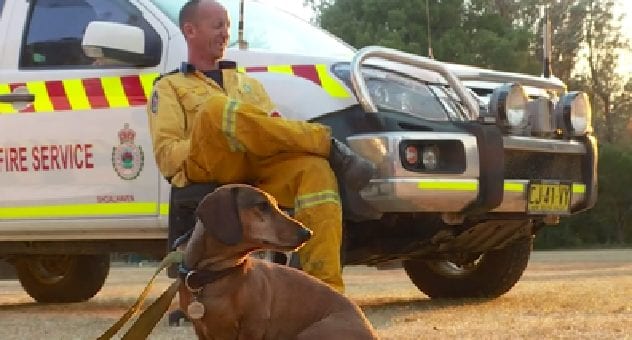
Wilbur was unaware of the fame gathering around him. While news channels flashed his photo and appealed to the public to be on the lookout for him, the dog was trying to survive in the wild. The odds were against him. Wilbur was a small dachshund lost in the lethal fires of New South Wales.
It’s unclear when he became separated from his owner but he was found early in December. Firefighters battling the blaze near Termeil noticed a small creature wandering alone between the flames. They rescued the dog and kept him overnight with their team. Thankfully, Wilbur’s owner quickly responded when the firefighters made it known that they had found a sausage dog.
The traumatized dachshund was delighted to see his owner. For the man, called Paul, the moment was bitter-sweet. He was still looking for his other dog and asked the firefighters to keep an eye out for a beagle called Olly. Incredibly, just a few hours later, Olly was also found. Both dogs were unhurt and happy to be back with their owner.
9 Versace Drops The Use Of Kangaroo Leather
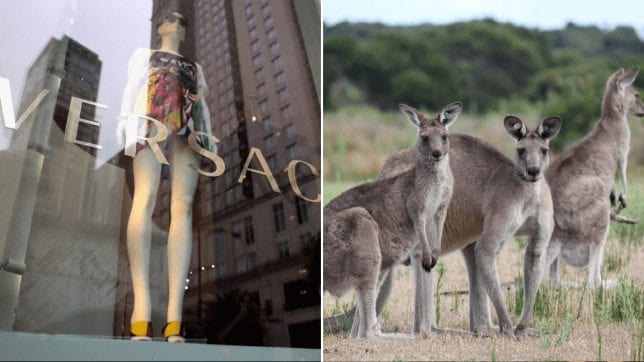
Two years ago, Versace announced that real fur was meh. The Italian fashion house guaranteed that none of their accessories or clothes would ever again contain the pelt pulled off an animal. However, they continued to use real leather. Moreover, kangaroo leather.
The kangaroo is viewed by many as the symbol of Australia and the number of wild animals being culled every year for leather doesn’t sit well with animal activists. Campaign groups have been asking fashion houses for a long time to boycott kangaroo products and finally, in 2020, Versace agreed.
The decision to remove kangaroo leather from its designs weren’t directly caused by the Australian fires. The pressure from activists had been ongoing for a while and Versace already withdrew any related products from its 2019 collection. However, the announcement was made this year and was seen as a welcome gesture at a time when the future of kangaroos is grappling with an unprecedented threat.
8 Six Koalas Saved By Firefighters
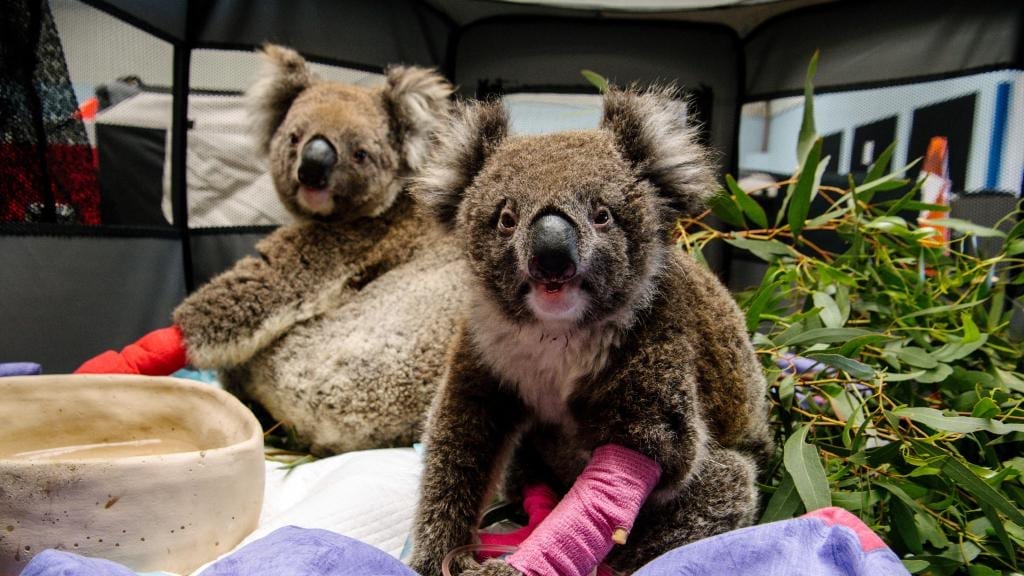
The koala is one of Australia’s icons. The 2019-2020 fire season didn’t help their fight against extinction. The numbers are heartbreaking. Tens of thousands of koalas have been burned alive. Hundreds were euthanazed and hundreds more are fighting for their lives in clinics. Stories abound of civilians and firefighters plucking the scorched koalas from trees, homes and off the roads.
One story concerned firefighters who came across a group of koalas at Cudlee Creek. They were fighting fires that would ultimately destroy over 100 buildings and homes and kill one man. During the dramatic hours that followed, the koalas were collected and taken to safety. Many praised the firefighters for their humanity. Battling the fast-moving fire meant that they were pressed for each second but the firefighters decided to stop and help the defenseless marsupials.
A photo of the koalas has since gone viral. The image shows the creatures, relatively unharmed, huddling together in a hallway. One even hugged the wall like a favorite eucalyptus tree. Koalas are cursed with cute looks in the sense that their portly bodies cannot escape a quick blaze. If it weren’t for these firefighters, and Koala Rescue taking them in, they would’ve joined the disaster’s terrible statistics.
7An Unknown Fish Trap
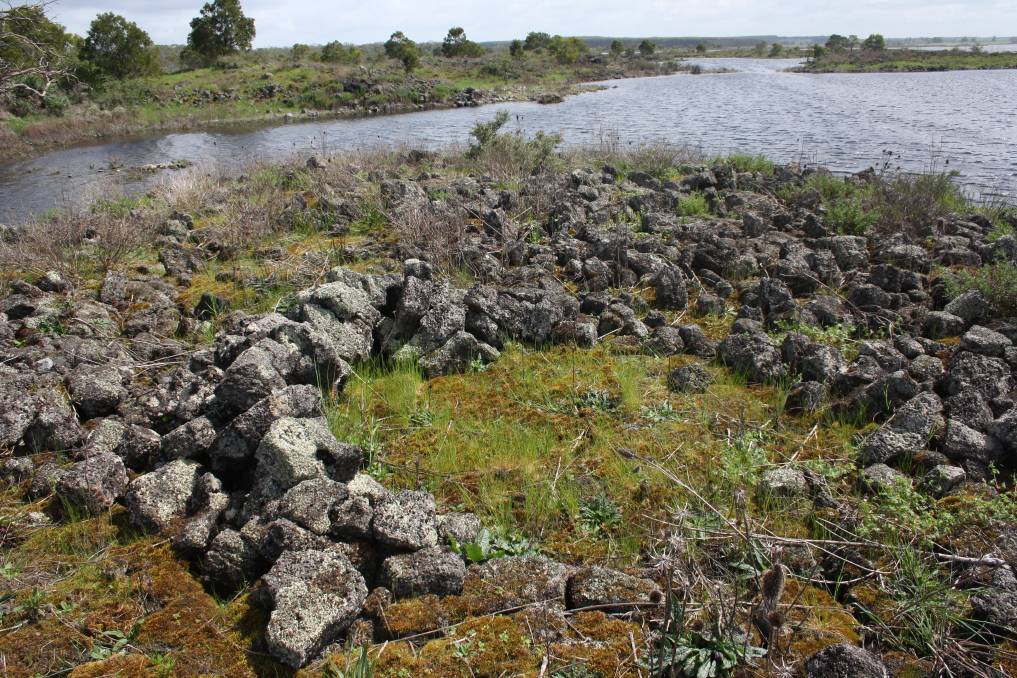
In 2019, UNESCO declared an aquaculture system in Australia as a World Heritage Site. The Gunditjmara people used the structure to harvest eels 6,600 years ago. Just to put that into perspective—the site is older than the Egyptian pyramids. The Budj Bim Cultural Landscape is located in south-west Victoria and includes an intricate system of stone-lined pools, channels, and homes.
The fires arrived a few days before Christmas. A lightning strike boosted the flames and despite a gigantic firefighting effort, the blaze dragged across 7000 hectares (17,297 acres) of land. Including the brand-new UNESCO ruins.
Traditional owners of the site weren’t too concerned that the fire would damage the ruins directly. The stones were almost heat-resistant. The real danger came from falling trees. Some grew inside the aquaculture buildings. If the fire toppled any, chances were that the structure could be weakened by roots being unearthed or smashed by a toppling trunk. When the blaze passed, a group visited to see if any trees had crashed onto the structure. Luckily, none did. Even more surprisingly, the blaze had cleared vegetation to reveal an unknown section of the trapping complex.
Located near Lake Condah, the section was a smaller system with a channel running 25 meters (27 yards) along the ground. Until the fire, this part of the traps went undetected despite sitting 20 meters (22 yards) from a track leading to the main site. In this case, at least, something valuable wasn’t destroyed by the blaze but instead emerged more complete than it was before.
6Millions Were Raised

As the world watched Australia burn, those with deep purses weren’t idle. Celeste Barber is an Australian comedian whose fundraiser attracted huge donations and pledges from celebrities. All told, the sum totaled A$22 million. Stars like Pink, Kylie Minogue, and Nicole Kidman were among those who joined the call to support Barber’s Facebook fundraiser. Incredibly, the eye-watering amount took less than 48 hours to accumulate.
Perhaps more noteworthy are the people without personal fortunes who found creative ways to support Australia. One was a woman named Kaylen Ward. The 20-year-old sex worker took to Instagram and promised a personal nude photograph to anyone who donated $10 or more to her designated fire relief charities. Four days later, she raised $700,000. None of the money reached her. Ward insisted that her admirers must pay the charities directly and send her the receipt to get their nude pictures. For her efforts she earned the name “The Naked Philanthropist” and Instagram deleted her account.
5 The Koala Dogs
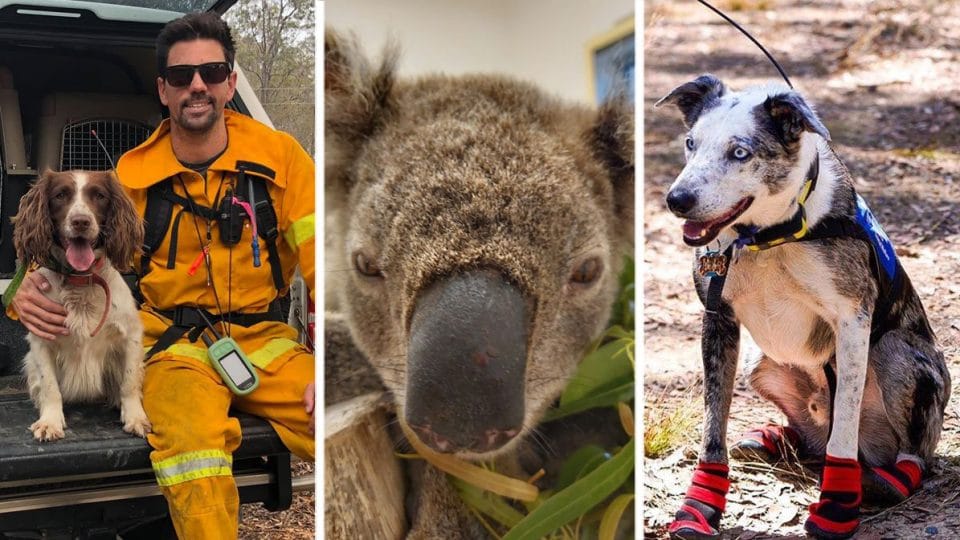
Narcotics dogs. Sure. Bomb-sniffing canines, okay. But koala dogs? As weird as it sounds, they do exist. When a handler barks, “Koala, find!” the four-footed detectives jump into action and start searching for fur and droppings. Their job is to keep track of the eucalyptus-munchers during good times and bad.
These are undoubtedly bad times and the dogs track under dangerous circumstances. Nearly all of them wear mittens to protect their paws from burns and sharp debris. Thus far, they’ve saved dozens of koalas. Two of the highly-trained canines are Taylor and Bear. Taylor is a four-year-old with eight koalas under her belt and Bear has such a prolific streak that Tom Hanks quipped he was going to make a movie about him.
Every koala saved is a treasure, but there simply aren’t enough dogs to help the thousands of marsupials that are still in trouble. Despite this, these service canines diligently perform their duties against an insurmountable tragedy, using their noses to find the bodies, the injured and the hiding koalas their handlers might miss.
4 Sheepdog Snoots 220 Sheep To Safety
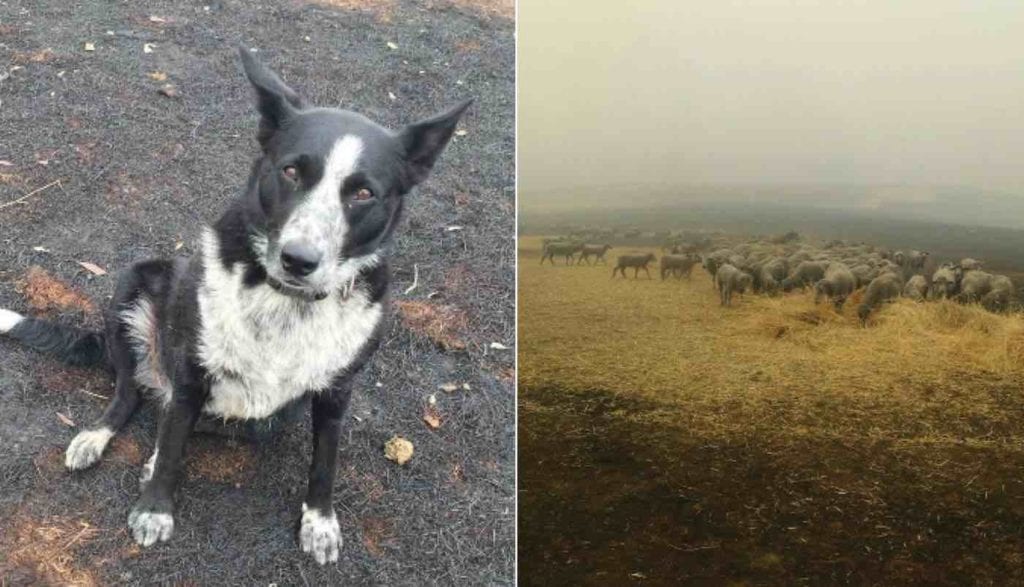
Stephen Hill gave no thought of enjoying New Year’s Eve. That night he was facing a terrible loss. The fires were closing in on the small town of Corryong, in Victoria. He looked around his cousin’s farm where he worked and realized the sheep were in danger. Worse, it was a dark night, the flock was being difficult and he needed help.
He turned to Patsy. He found the shepherd mix on the property and loaded her on a four-wheeler before setting off to the field where the sheep were in trouble. Despite the heat, bleating and fire-related smells the dog never faltered. She followed Hill’s commands and herded the frightened animals to a safe barn. It wasn’t an easy task, not with a large number of sheep involved nor the proximity of the massive blaze. Indeed, the flames claimed six sheep. But in the end, Patsy nudged more than 220 animals to safety.
Hill gave the dog sole credit for the flock’s survival, an act that meant the world to him. He’s one of the countless people still badly affected by the genocidal losses suffered among domestic and wild animals alike.
3 Request For Shelters Triggered A Global Response
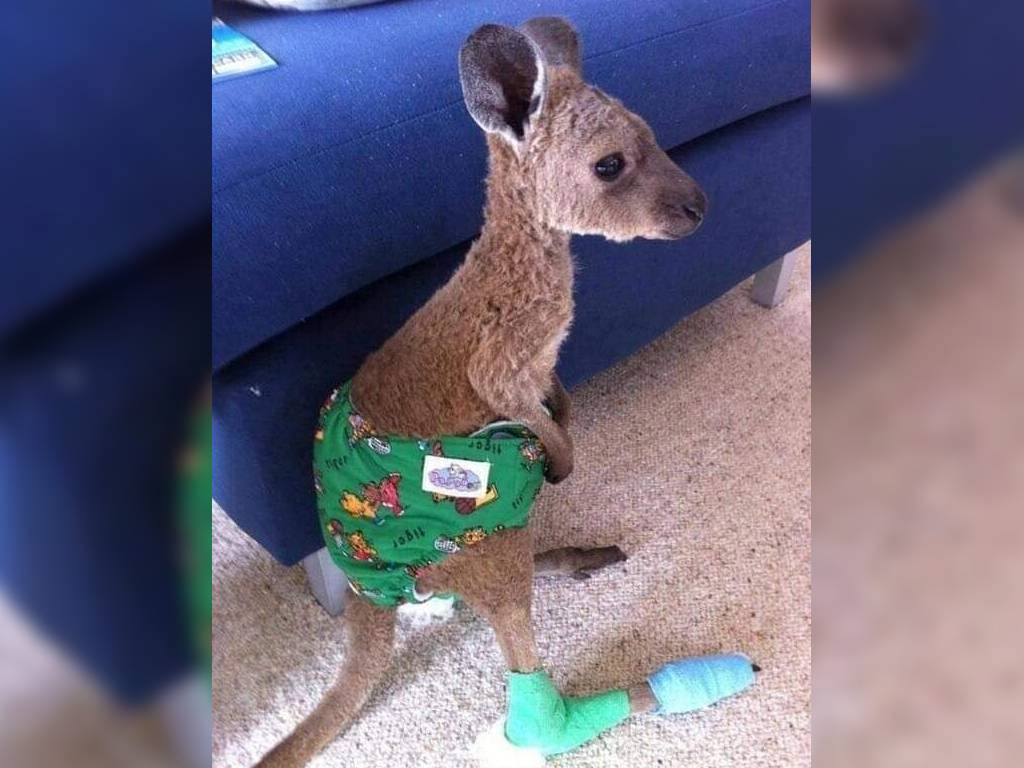
The inferno left hundreds of animals orphaned or without a home. A large portion of the destitute babies are marsupials that need warmth and a mother’s pouch to survive. This season’s tide of orphans sparked one of the disaster’s most unusual and cozy rescue efforts.
Animal Rescue Craft Guild is based in Australia. Long before the fires came, the organization whipped up shelters, including nests and slings, for young wildlife. The babies would then snuggle in their new homes made from knitted, crocheted and cloth items. When the crisis hit, the animals came pouring into shelters and the Guild appealed to their Facebook members to help sew and knit the items. The response was overwhelming.
From all over the world, thousands of knitters and crafters united. They made koala mittens for burned paws, kangaroo pouches for joeys, blankets for animals to sleep on and interestingly, something called bat wraps. These are exactly what they sound like. You take a baby bat and you wrap the kid up nice and comfy. Possums, sugar gliders and wombats also received their crafted goodies.
2The Government Airdropped Food For Wallabies
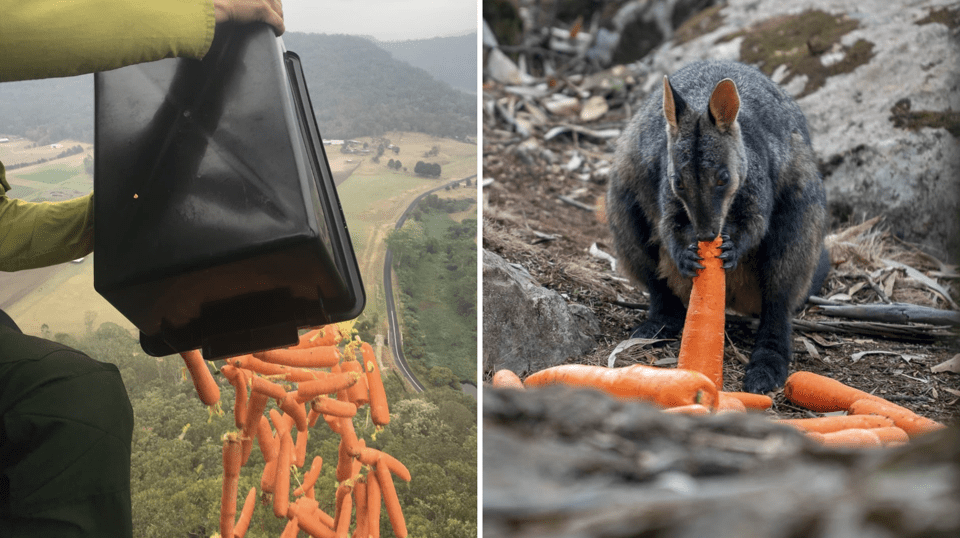
The Brush-tailed Rock Wallaby is an endangered species in New South Wales, one of the worst-hit areas. The fires connected with their vulnerability like a baseball bat. The blaze undoubtedly killed many and left the survivors in a barren landscape without food. Large-scale starvation set in. Before the fire season, the animals had also been struggling against Australia’s ongoing drought.
The government of NSW decided to help. Operation Rock Wallaby collected tons of vegetables, mostly carrots, and nutritious sweet potatoes. The planes first took off early in January and dropped the food over a dozen wallaby colonies. The project will continue until the marsupials can support themselves with renewed natural food resources and water.
The image of one of the wallabies was shared with the public, showing both the devastation and the success of the aid program. Like many others, the creature leaped at the chance to gorge on the veggies and this particular one was photographed enjoying a carrot.
1 A Secret Mission
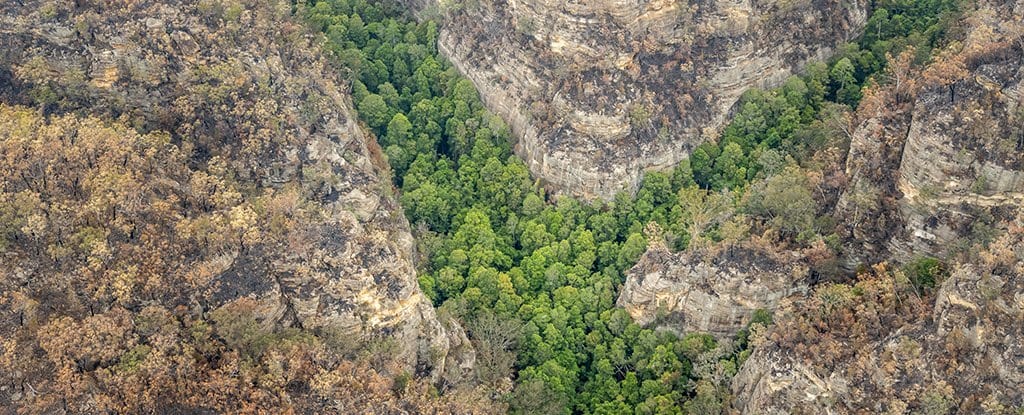
When a park ranger found a tree in 1994, it sent shock waves through the botanical world. The Wollemi Pine existed before many dinosaurs and was thought to be extinct. Before the Jurassic wonder’s rediscovery, the tree was known only from 200-million-year-old fossils. The pine found in 1994 was not alone. A grove of the rare, so-called “Dinosaur Trees” stood nearby.
The grove is located in a gorge in the Blue Mountains. But the precise spot remains a closely guarded secret. Visitors and poachers would exterminate the living fossils. Botanical gardens around the world propagate the species but the Australian batch, numbering less than 200, is the last wild Wollemi Pines in the world.
When the blaze came, the prehistoric treasure was directly in its path. While keeping the location’s hidden status in mind, conservationists organized a secret mission to save the trees. Despite the drama of extinction edging closer to the grove and that the mission itself was unprecedented in the history of environmental protection, the rescuers kept everything low key. Publicity could’ve led unwanted guests straight to the grove.
Air tankers circled the pines and drew a ring of fire retardant around them. Specialist firefighters were airlifted to the gorge. Once on the ground, they rigged an irrigation system to keep the trees moist. But at one point, the team had to retreat. The fire had arrived. After a few days filled with thick smoke, everyone waited for the haze to clear to see if their plan had worked.
Incredibly, the pines were safe. A little charred, but relatively unscathed. The mission had been a phenomenal success.
For more lists like this take a look at 10 Surprising Facts About Firefighters and 10 Mysterious Fires Caused By Ghosts.

